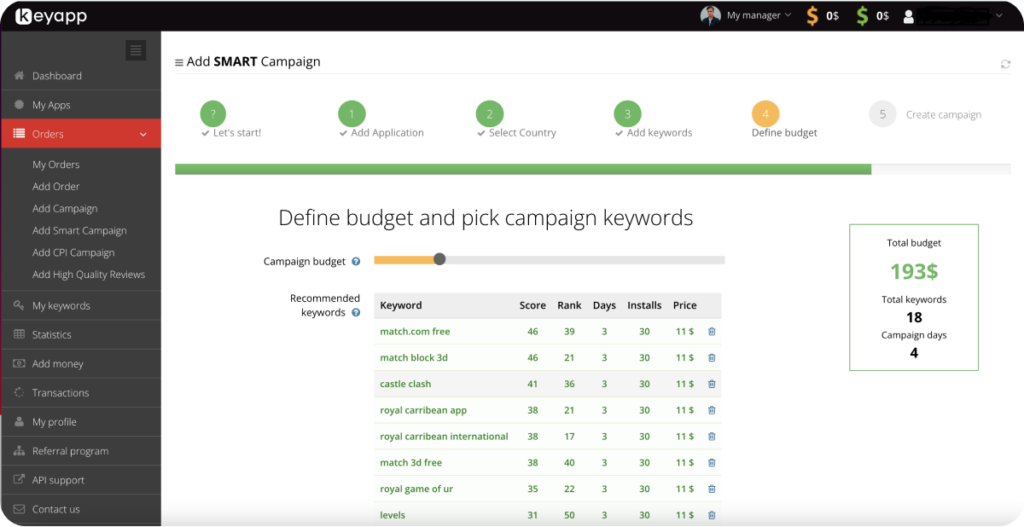In the ever-evolving landscape of App Store Optimization (ASO), the rise of artificial intelligence (AI) has sparked discussions about its potential to replace ASO managers. As of June 2023, it was reported that 10.8 percent of employees of worldwide companies have tried using ChatGPT in the workplace at least once. With advanced language models like ChatGPT, the question arises: can AI effectively optimize applications and replace the need for human managers? In this article, we will explore the capabilities of AI and other useful tools in optimizing applications, provide an overview of AI tools for ASO managers with examples, discuss how AI enhances ASO efforts, examine the future outlook, and draw a conclusion on whether AI will replace ASO managers.
- An Overview of Useful Tools for ASO Managers
- How AI Enhances ASO Efforts
- What Can ChatGPT Do to Optimize Applications Instead of Managers?
- The Human Touch: The Unique Value of ASO Managers
- The Future Outlook
An Overview of Useful Tools for ASO Managers
AI-powered tools are gaining popularity among ASO managers due to their ability to streamline and automate various optimization processes. Artificial Intelligence has revolutionized ASO, providing ASO managers with a wide range of powerful tools to streamline their processes and drive better results. Let’s explore some useful AS tools and more for ASO managers, along with examples of each:
1. Keyword Research Tools
Example: Keyapp Free ASO Tools
This ASO tool helps discover the best keywords for your app in your target region. Say goodbye to tedious keyword research and welcome a comprehensive list of indexed keywords tailored to your desired region (Smart Campaign). KeyApp’s efficient tool provides you with a ready-to-use list of keywords that can supercharge your app’s promotion campaigns or serve as a foundation for further research.
Maximize your app’s potential, enhance your promotional campaigns, and save valuable resources with a keyword suggestion tool. Simply input your desired keyword and click the “Suggest” button to receive a list of relevant suggestions used by organic users in the search bar of Google Play or App Store.

2. Competitor Analysis Tools
Example: MobileAction
MobileAction’s Competitor Intelligence AI-driven competitor analysis tools help ASO managers gain a competitive edge by analyzing competitor apps’ performance, keywords, and strategies. These tools identify gaps and opportunities in the market, empowering ASO managers to adjust their optimization strategies accordingly.
3. Metadata Optimization Tools
Example: Sensor Tower
Sensor Tower’s Store Intelligence AI tools analyze app metadata, including titles, descriptions, and keywords, to suggest improvements for better visibility and conversion rates. These tools offer data-driven recommendations, ensuring that ASO managers make informed decisions when optimizing app metadata.
4. Performance Tracking Tools
Example: Keyapp ASO Analytics
Not AI-powered performance tracking tools provide data and analytics to monitor the effectiveness of ASO efforts. ASO managers can track keyword rankings, scores, and traffic absolutely free. It helps make data-driven decisions.
5. A/B Testing Tools
Example: SplitMetrics
SplitMetrics’ A/B Testing Platform AI-driven A/B testing tools allow ASO managers to test and compare different variations of app elements, such as icons, screenshots, and descriptions. Using machine learning algorithms, these tools analyze user behavior to identify the most effective elements that drive higher conversion rates.
6. Sentiment Analysis Tools
Example: Appbot
Appbot’s Sentiment Analysis Sentiment analysis tools use AI algorithms to analyze user reviews and feedback. ASO managers can gain insights into user sentiments, identify areas for improvement, and make data-driven decisions to enhance user satisfaction and app ratings. By the way, you can improve your app reputation and buy app reviews for your iOS and Android apps with a 30-days-guarantee for any niche.
7. Voice Search Optimization Tools
Example: Algolia
Algolia’s Voice Search With the rise of voice assistants, AI tools focused on voice search optimization have emerged. These tools help ASO managers optimize their app’s visibility for voice-based searches, considering factors such as natural language processing and voice search queries.
These examples showcase the capabilities of AI tools in assisting ASO managers with various aspects of app store optimization. It’s important for ASO managers to explore and evaluate different AI tools available in the market, considering their specific needs and goals. Remember, AI tools complement the skills and expertise of ASO managers, enhancing their decision-making process and ultimately driving better app performance.
How AI Enhances ASO Efforts
AI enhances ASO efforts by leveraging its computational power and data analysis capabilities. Unlike human managers, AI models can process vast amounts of data quickly and efficiently. They can identify patterns, spot trends, and derive actionable insights that might be missed by human analysis alone. AI tools can provide real-time data updates, monitor app store changes, and offer suggestions to improve app performance promptly.
Furthermore, AI models continuously learn and adapt based on user behavior and feedback, enabling them to refine optimization strategies over time. But don’t forget that ChatGPT has very limited knowledge of the post-2021 world due to database training. Don’t forget to check the results with people. Although ChatGPT has the ability to generate writing that is grammatically correct and well-structured, it may fall short in terms of context and sensitivity compared to a human writer. While it can produce content that meets the basic requirements, it may not consistently capture the intended tone, style, or purpose.
By harnessing AI in ASO efforts like useful tools, managers can gain a competitive edge, improve efficiency, and make data-driven decisions.
What Can ChatGPT Do to Optimize Applications Instead of Managers?
ChatGPT, a powerful AI language model, can assist in various aspects of application optimization. Firstly, it can conduct extensive keyword research, analyzing user search trends and identifying relevant keywords to improve app visibility. Read more about how to make ASO with ChatGPT in our Case Study.

By leveraging its vast database of information, ChatGPT can generate keyword-rich app descriptions, titles, and metadata that appeal to both users and app store algorithms.

Furthermore, ChatGPT can analyze user reviews and feedback, and extracting valuable insights and sentiment analysis. Just copy reviews and paste them in ChatGPT asking to find relative keywords in these reviews. This information helps identify areas for improvement, allowing developers to enhance their app’s user experience and address pain points effectively.
AI models like ChatGPT can also analyze app competitors keywords, providing valuable competitive intelligence for strategizing ASO campaigns.


The Human Touch: The Unique Value of ASO Managers
In the rapidly evolving world of ASO, the human touch remains an invaluable asset that sets ASO managers apart. While artificial intelligence and automated tools have their place, ASO managers bring a unique value that cannot be replicated. Here are some reasons why the human touch is essential in ASO:
- Strategic Thinking: ASO managers possess the ability to think strategically and holistically about app promotion. They consider various factors, including target audience, market trends, competitor analysis, and business goals, to develop comprehensive and tailored ASO strategies. This human expertise allows for a deeper understanding of the app’s unique selling points and how to position it effectively in a crowded marketplace.
- Contextual Understanding: ASO managers have the advantage of understanding the contextual nuances that AI models may struggle with. They can interpret user behavior, analyze customer feedback, and adapt strategies accordingly. This contextual understanding helps in crafting compelling app descriptions, selecting relevant keywords, and optimizing metadata for maximum impact.
- Creativity and Innovation: ASO managers bring creativity and innovation to the table. They can brainstorm unique ideas to stand out from competitors, experiment with different approaches, and iterate based on results. This human creativity plays a crucial role in optimizing app assets, designing engaging visuals, and developing captivating app store listings.
- Personalization and Localization: ASO managers excel at tailoring app promotion to specific target audiences and local markets. They can adapt messaging, keywords, and visuals to resonate with regional preferences and cultural nuances. This personalization and localization enhance user engagement and drive higher conversion rates.
- Adaptability and Agility: The app market is dynamic, with trends and algorithms constantly evolving. ASO managers possess the agility to adapt quickly, stay updated with industry changes, and adjust strategies accordingly. They can monitor app performance, analyze data, and make informed decisions to optimize app visibility and drive growth.
- Relationship Building: ASO managers play a crucial role in building and nurturing relationships with app store representatives, influencers, and partners. They can leverage these connections to explore promotional opportunities, secure features, and expand the app’s reach.
While AI and automated tools have their place in ASO, they cannot replace the human touch provided by ASO managers. The blend of data-driven insights, strategic thinking, creativity, and personalization offered by human professionals is key to achieving sustainable app success. Embracing the human touch in ASO ensures a comprehensive and nuanced approach that goes beyond the capabilities of AI alone.
The Future Outlook
The future of ASO is undoubtedly intertwined with AI. As technology advances, AI models will continue to evolve, becoming even more sophisticated and capable. AI-powered chatbots might be integrated into app store platforms, offering instant customer support and personalized app recommendations. Additionally, AI’s natural language processing capabilities could improve app search algorithms, leading to more accurate and relevant search results.
While AI will undoubtedly revolutionize ASO, it is important to note that human expertise and creativity still play vital roles. ASO managers bring domain knowledge, strategic thinking, and an understanding of user behavior that AI models cannot replicate entirely. The collaboration between AI and human managers is likely to be the key to unlocking the full potential of app optimization.
Artificial intelligence, exemplified by models like ChatGPT, holds great promise for revolutionizing ASO practices. While AI can automate and streamline various optimization processes, it is unlikely to completely replace ASO managers. Instead, AI will augment their capabilities, providing powerful data analysis, insights, and automation tools that enhance decision-making and efficiency. The future of ASO lies in striking a balance between AI-driven automation and the human touch, enabling app developers and ASO managers to achieve the best results and stay ahead in the highly competitive app market.


























